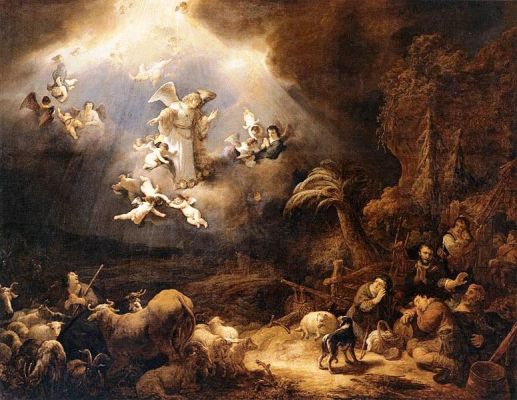 |
| "Angels Announcing the Birth of Christ..." (G. Flinck) |
So, what do do with the Christmas stories on Sunday morning? It is really, really hard to avoid them, obviously. But here's the thing, they are actually richly textured and deeply meaningful stories in and of themselves. There is good reason why they have become the most beloved parts of scripture in popular thinking. That being the case, on Sunday mornings in Advent the preacher's task is to "unpack" the meaning of the stories as introductions to the whole of each gospel. Individual preachers may or may not want to mention scholarly qualms over the historical truth of the events described, but the preacher's task is to dig into the meat of the stories themselves. Such a tactic leaves the preacher open to the criticism of the religious skeptics" "You are just pulling the wool over your parishioners' eyes—as usual—and playing footloose with the concept of truth." It also leaves the preacher open to the criticism of the literalists: "YOU DON'T REALLY BELIEVE IN JESUS AT ALL!"
Still, walking somewhere between the secular skeptics and the religious fundamentalists is the best path to take in cases like this. It isn't, maybe, the most comfortable one, but the skeptics would have us throw the baby out with the bath water while fundamentalists refuse to bathe the baby. In the history of Christian theology, seeking the middle way (via media) has a long, honorable tradition, and the best way to honor that tradition today is to walk a middle path between the skeptics and the fundamentalists, especially at Christmastime.
How does this actually work? How do we walk the middle ground and present tell the Christmas story as truthfully and meaningfully as we can? In a series of postings to follow, I'm going to work at answering just that question. Stay tuned.